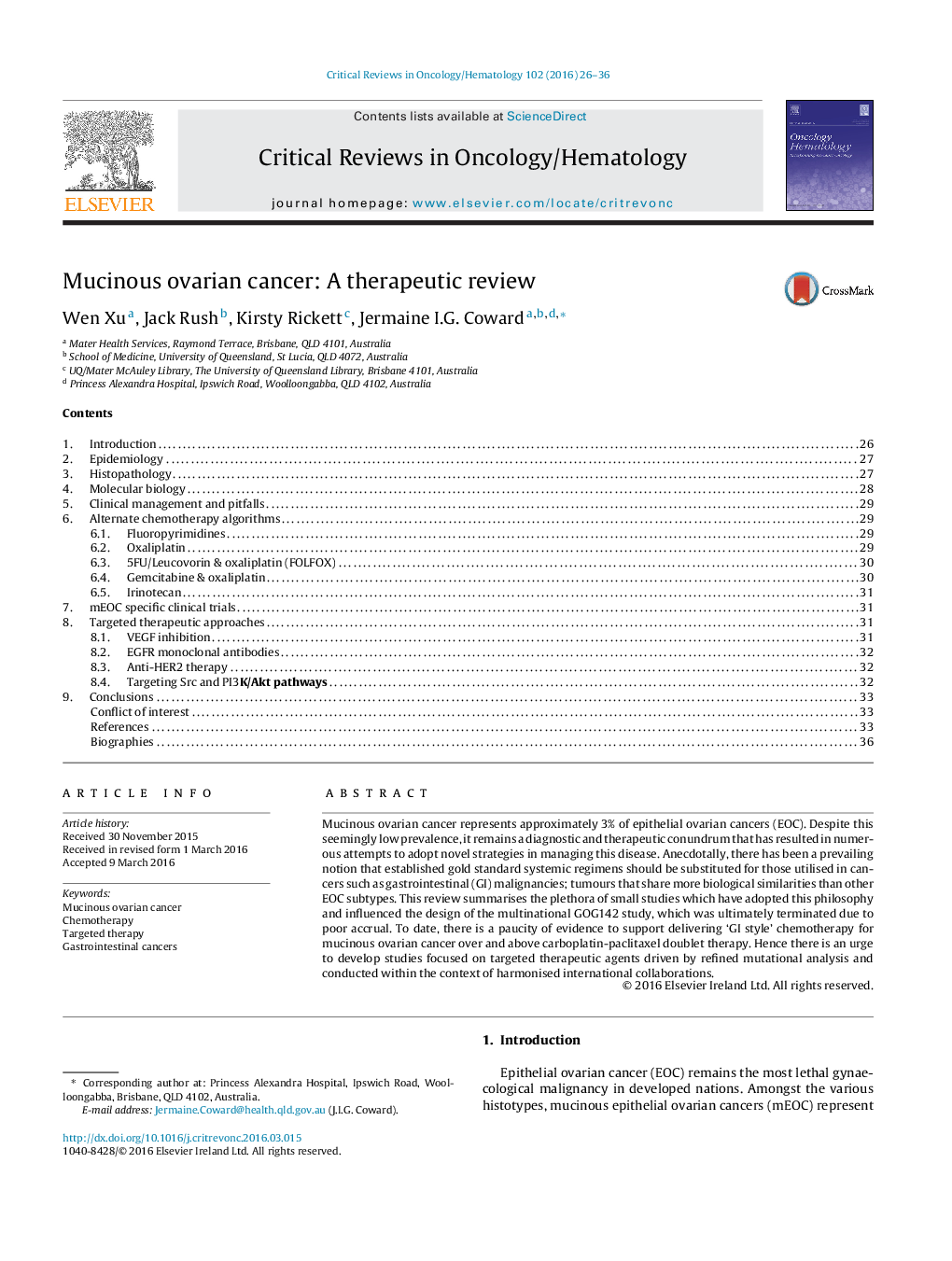| Article ID | Journal | Published Year | Pages | File Type |
|---|---|---|---|---|
| 3328529 | Critical Reviews in Oncology/Hematology | 2016 | 11 Pages |
•Mucinous epithelial ovarian cancer (mEOC) is a rare chemoresistant subtype of ovarian cancer with distinct pathology and natural history.•It can often masquerade as metastatic mucinous tumours from the gastrointestinal tract.•In contrast to high-grade serous ovarian cancer mEOC are far less defined by p53 mutations and instead commonly harbour KRAS and HER 2 mutations.•he current gold standard of 1st line platinum/taxane doublet chemotherapy, is more tailored towards HGSOC and generally ineffective for mEOC
Mucinous ovarian cancer represents approximately 3% of epithelial ovarian cancers (EOC). Despite this seemingly low prevalence, it remains a diagnostic and therapeutic conundrum that has resulted in numerous attempts to adopt novel strategies in managing this disease. Anecdotally, there has been a prevailing notion that established gold standard systemic regimens should be substituted for those utilised in cancers such as gastrointestinal (GI) malignancies; tumours that share more biological similarities than other EOC subtypes. This review summarises the plethora of small studies which have adopted this philosophy and influenced the design of the multinational GOG142 study, which was ultimately terminated due to poor accrual. To date, there is a paucity of evidence to support delivering ‘GI style’ chemotherapy for mucinous ovarian cancer over and above carboplatin-paclitaxel doublet therapy. Hence there is an urge to develop studies focused on targeted therapeutic agents driven by refined mutational analysis and conducted within the context of harmonised international collaborations.
